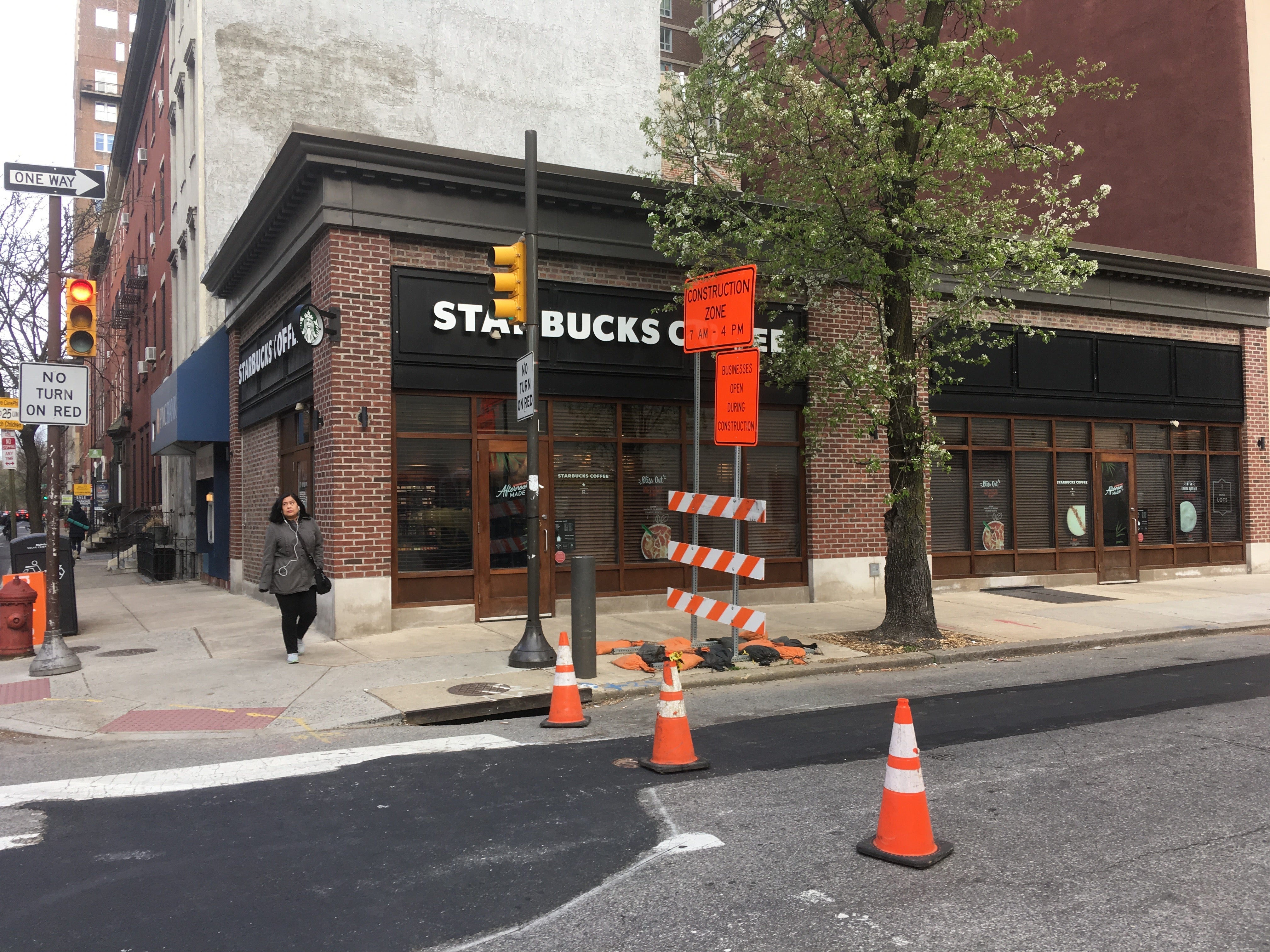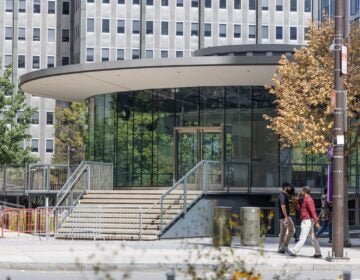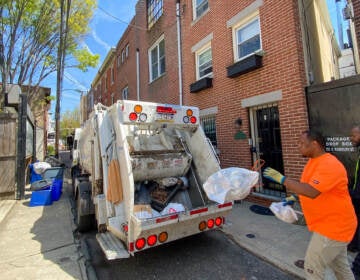Rittenhouse Starbucks patron: “We should all be able to… get a cup of coffee or sit down.”

The rhythm of daily commerce has resumed at Starbucks at 18th and Spruce Streets, where the filmed arrest of two black men eight days ago launched another round of the nation’s ongoing debate around racial inequity.
Shortly before 8 a.m. on Thursday, a handful of customers queued up patiently for short lattes and venti coffees as a milquetoast melody wafted gently in the air. Around half the customers were black, as was the staff. There were no obvious signs that this had been the locus of roiling protests over the weekend at the store, which reopened on Tuesday. The scene was remarkably unremarkable.
The shift manager, a young black woman, politely asked a reporter to seek permission from Starbucks media relations before trying to conduct interviews inside the shop. Outside, nearly all customers declined to be interviewed. Some, noticing the microphone from a distance, walked out of their way to use a different entrance to the store.
One white man considered talking for a moment before declining, saying his “opinion about the incident isn’t popular.”
Few seemed eager to wade into the ongoing controversy over the disparate treatment of African-Americans, particularly African-American males, in public and semi-public spaces. The risks are immense — a single misstatement can foment an online mob — and the rewards, vanishingly small.
Despite this, Omar Fisher was willing to test the waters. Sporting a throwback Philadelphia Athletics cap and a backpack slung over one shoulder, the black Mt. Airy resident said the Starbucks manager shouldn’t have called the cops last Thursday. But it’s time to move on.
“The reason why I came here today [is that] we can’t harp on the negative,” said Fisher, who was grabbing coffee and checking work emails at the Starbucks before walking to his office job in Center City. “At some point, we have to come to the table; we need to talk, we need to work together, we need to live together. Black people aren’t going away; white people aren’t going away, police aren’t going away.”
“We’re all children of God, we all matter,” Fisher added. “We should all be able to come to Starbucks, and get a cup of coffee or sit down, and that’s why I came here today.”
On Thursday afternoon, Philadelphia Police Commissioner Richard Ross apologized for saying the six police officers who stormed into Starbucks last week and arrested the calmly seated did “absolutely nothing wrong.”
Ross explained that he should have said that the arresting officers acted within the bounds of the law, but “failed miserably” in communicating to the public about the incident.
He said that he and the officers didn’t know that the Starbucks business model hangs on the notion that the cafes are places to spend time, and that employees routinely allow people to sit at the shops without buying anything.
“I can appreciate — in light of the Starbucks policy and how well known it is to many — why these two men were appalled when they were asked to leave,” Ross said. “For this reason, me, I apologize to them.
Mayor Jim Kenney, who said on Saturday that the incident “appears to exemplify what racial discrimination looks like in 2018,” commended the city’s top cop for the apology.
Still, the words weren’t enough to stop protesters from marching later on Thursday. The interfaith group POWER organized the march from Philadelphia police headquarters to City Hall, chanting for police accountability and an end to racial bias. According to the ACLU of Pennsylvania, 67 percent of police stops in the district servicing Rittenhouse involved African-Americans, despite 97 percent of the area’s residents being white.
“We’ve had enough of getting accosted when walking while Black, sitting while Black, existing Black.” – Pastor Melanie Debouse pic.twitter.com/GnVHnS9Je0
— POWER (@powerinterfaith) April 19, 2018
In response to the arrests at their store, Starbucks plans to close all 8,000 of its U.S. locations on May 29th so employees can undergo a “racial-bias education” training.
WHYY is your source for fact-based, in-depth journalism and information. As a nonprofit organization, we rely on financial support from readers like you. Please give today.






